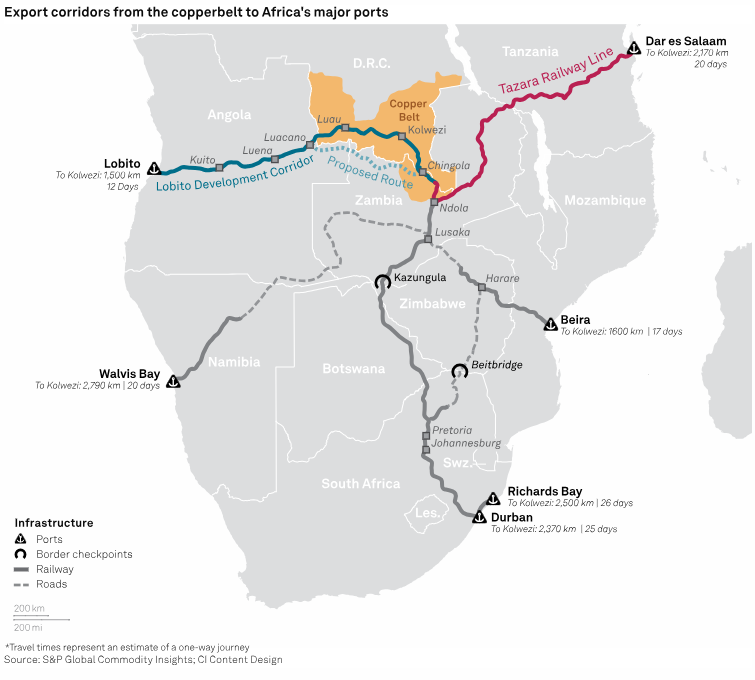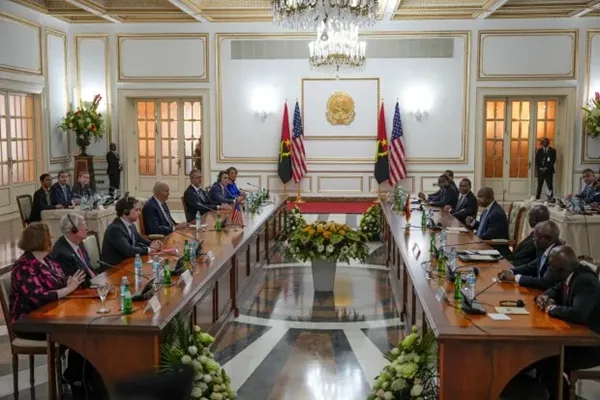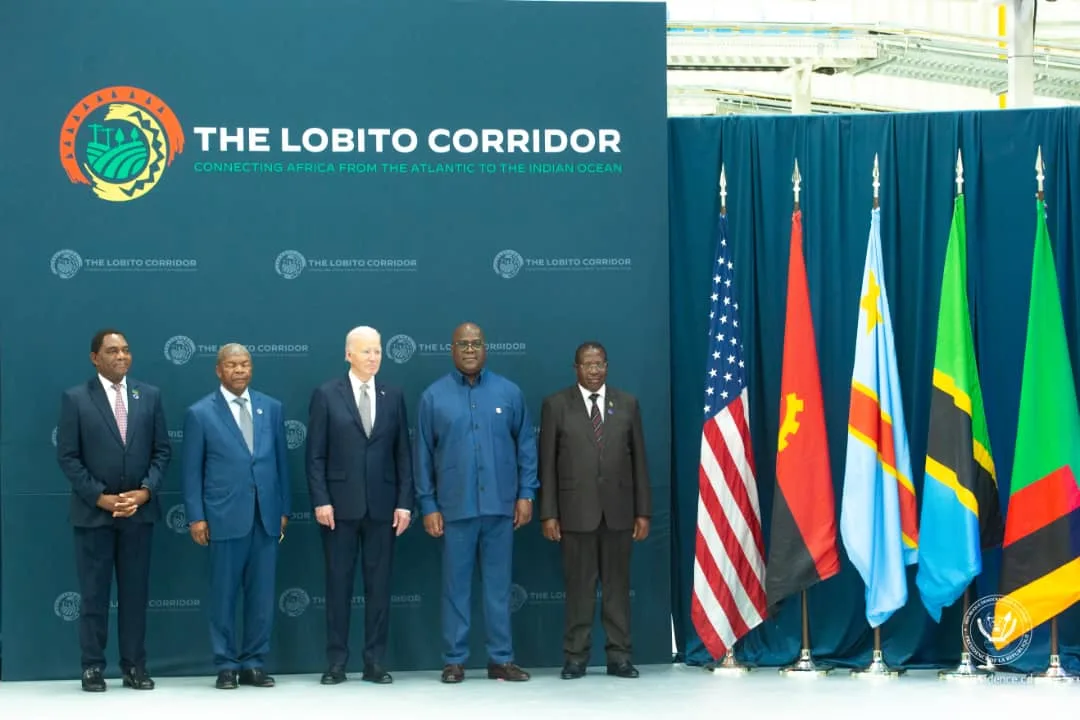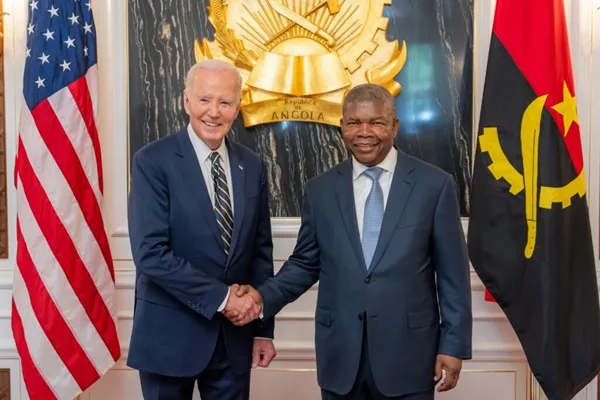“The future of the world lies in Africa,” declares Biden in Angola
During his state visit to Africa, US President Joe Biden declared: “The future of the world lies in Africa!” He may well be right in some ways because Africa has all the essential minerals and metals (#EMM) needed for future industries and strategic sectors, notably in new clean energy, electronics and defense.
To put words into action, the US plans to inject nearly USD 1 billion to develop the #LobitoCorridor which will connect the Lobito seaport on the Atlantic Ocean to the mineral-rich regions of the Democratic Republic of Congo (DRC) and the Republic of Zambia. Potentially, the Lobito Corridor could be extended to Tanzania with another access to a seaport on the Indian Ocean by linking up with the Tanzania-Zambia Rail (#TAZARA).

The visit was long-awaited as Biden pledged to tour Africa during the last US-Africa Leaders Summit in 2022 (#UALS2). Originally scheduled for the end of 2023, the visit was first pushed forward to October 2024. Then, hurricanes hit the US hard and Biden again put off the visit. Toward the end of his administration after the election of Trump, Biden is finally making good on his promise.
Had the visit occurred in 2023 or even at the start of 2024, observers postulate that the African tour of the US President would have been more impactful and stronger in symbolism. It is worth noting that the last visit by a US President in Africa was undertaken by Obama — who has Kenyan roots — back in 2015. As the saying goes, better late than never!
On his way to Luanda, Biden made a whistle stop in Cape Verde lasting less than 24 hours. Then, he landed in Luanda on 2 December 2024, less than two months before passing the baton to new President-elect Trump.
It will be highly interesting and eagerly anticipated to observe the policy direction and general attitude of Trump towards Africa. Previously, Trump dismissed the black continent and even labelled it in disparaging terms.
Trump is known to be gung-ho about keeping ‘America First’, which implicitly means keeping ‘China Second.’ However, it would seem that to keep American at the top of the global pecking order, US cannot do without Africa due to the strategic resources and vast market that Africa possesses.

DRC and Zambia supply China with cobalt, tantalum and copper which are #CriticalMinerals for its electronics and aerospace industry. Similarly, Zimbabwe has emerged as a significant source of lithium for China, with lithium going into the manufacturing of high-density rechargeable batteries for electric vehicles (#EV) and energy storage systems (#ESS). Both these applications are viewed as absolutely vital for a successful #EnergyTransition toward #NetZero.
The US will have some catch-up to do in terms of bilateral trade with Angola. In 2023, the US-Angola trade volume stood at a mere USD 2 billion, compared to 10 times more at USD 20 billion for China-Angola. Being an oil-rich country, Angola is one of the top oil producers and exporters in Africa and does export quite a lot of crude oil to China.
On the other hand, Biden claims that the US #FDI into Africa has exceeded USD 55 billion since 2022, with Angola having received some USD 3 billion during his presidency. To put things in perspective, China pledged a total financial package of USD 50 billion during the FOCAC Summit 2024 (#FOCAC2024) for the three-year period from 2024 to 2027.
Most of the FDI comes from the American private sector whereas the China-Africa partnership is led by Chinese State-Owned Enterprises (#SOE), which the US argues often does not lead to viable and sustainable choices.

On 4 December 2024, Biden traveled to the seaport city of Lobito. There, he was joined by his host Angolan President Lourenco, DRC President Tshisekedi, Zambian President Hichilema and Tanzanian Vice-President Mpango. The five leaders held a round-table discussion centered around the #LobitoCorridor.
To reinforce US-Africa ties, Angola and US have agreed to hold the next US-Africa Business Summit (#UABS2025) in Luanda next year. With a new administration coming into the White House by the end of January 2025, the US will get another high-profile opportunity to push forward it’s ‘Pivot to Africa’ agenda.

